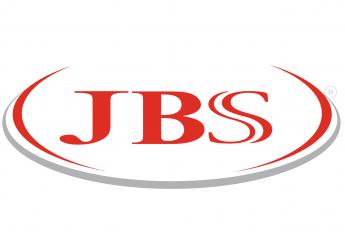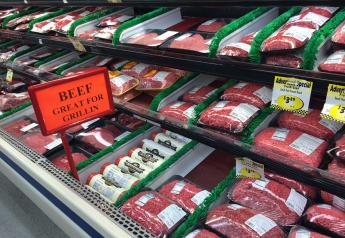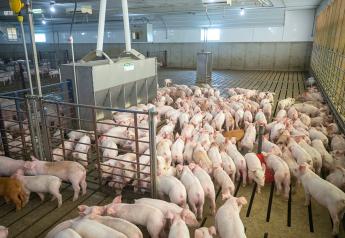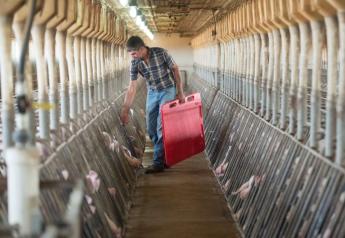USDA Announces $12 Billion Short-Term Tariff Relief Program
Agriculture Secretary Sonny Perdue announced a $12 billion program to help farmers who are currently bearing the brunt of President Trump’s trade tactics.
“Today were formally announcing that the Trump administration will be taking several actions to assist farmers in response to the trade damage caused by the illegal retaliatory tariffs that have been imposed on the United States in the past few months,” Perdue said in a press conference on Tuesday. “The programs we’re announcing today are a firm statement that other nations cannot bully our agriculture producers to force the United States to cave in.”
According to Perdue, the funds will be paid out through three programs administered by USDA under the Commodity Credit Corporation Charter Act.
“This administration will not stand by while our hard-working agriculture producers bear the brunt of unfriendly and illegal tariffs enacted by other nations,” Perdue said. The $12 billion program is “directly in line” with estimated $11 billion impact illegal tariffs are having on farmers, according to Perdue.
The programs include a market facilitation program which would result in farmer payments, a food purchase and distribution program which would purchase surplus of goods going to nutrition programs, and a trade promotion program to provide private sector assistance to new markets.
“The Trump Tariff Aid plan draws on the financial resources of a program known as the Commodity Credit Corporation (CCC) and Section 32 funding,” said Jim Wiesemeyer Pro Farmer’s Washington policy analyst. “The initiative does not authorize any new money and thus not need approval from Congress. But U.S. taxpayers will see deficits go still higher.”
Details Murky
Officials called this program a "one-time" action. While farmers should be prepared to take advantage of the program, how it will actually work is still unclear.
“USDA says it will take some time to develop the needed rules and regulations for the efforts and there will be a Federal Register notice published,” Wiesemeyer said. “There will be a relatively simple signup —producers will need to tell USDA what their 2018 production is for the crops targeted, and that level of what they actually produced times a payment rate and producers would get a payment based on that formula.”
Specific details for how the program will work, how the program will be implemented and how farmers can sign up for payments have not been announced. According to USDA undersecretary, Greg Ibach, the details will be released closer to Labor Day when USDA plans to fully implement the program.
“Payments are expected to start going to producers in September and will be also dictated by when the producer actually harvests the crops where the direct payments will be made,” Wiesemeyer said. “That would signal most wheat producers would be first up to receive the payments along with pork and dairy producers.”
A Long Road Ahead
This announcement came the same day that President Trump sent a tweet expressing his love for tariffs as a trade tactic and prior to a schedule trip to Iowa on Thursday.
Tariffs are the greatest! Either a country which has treated the United States unfairly on Trade negotiates a fair deal, or it gets hit with Tariffs. It’s as simple as that - and everybody’s talking! Remember, we are the “piggy bank” that’s being robbed. All will be Great! — Donald J. Trump (@realDonaldTrump) July 24, 2018
According to Wiesemeyer, the announcement of this program ups the odds that Trump and his aggressive trade policy officials will continue their escalation of tariff tit-for-tat around the world.
“The approach now shows it will cost American producers (and now taxpayers) billions of dollars and could inflict political pain on Republicans in farm states who now will have to address the president's trade policies and plans to temper their impacts,” he said.
History has shown this program will not be enough for farmers to come out of this trade situation unscathed, Wiesemeyer says.
“No government program can make the ag industry whole, as was evident in prior trade-impacting announcements from other presidents, including Nixon and Carter,” he said. “Those self-inflicted wounds caused some countries, including Japan and others, to invest in agriculture and infrastructure development in Brazil, Argentina and elsewhere, helping Brazil become a major export challenger to the United States.”







